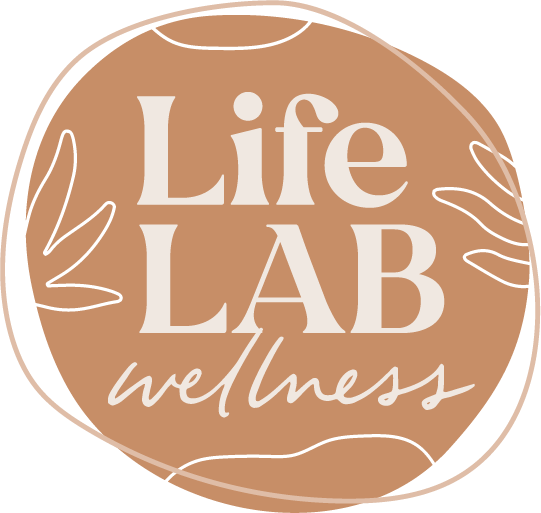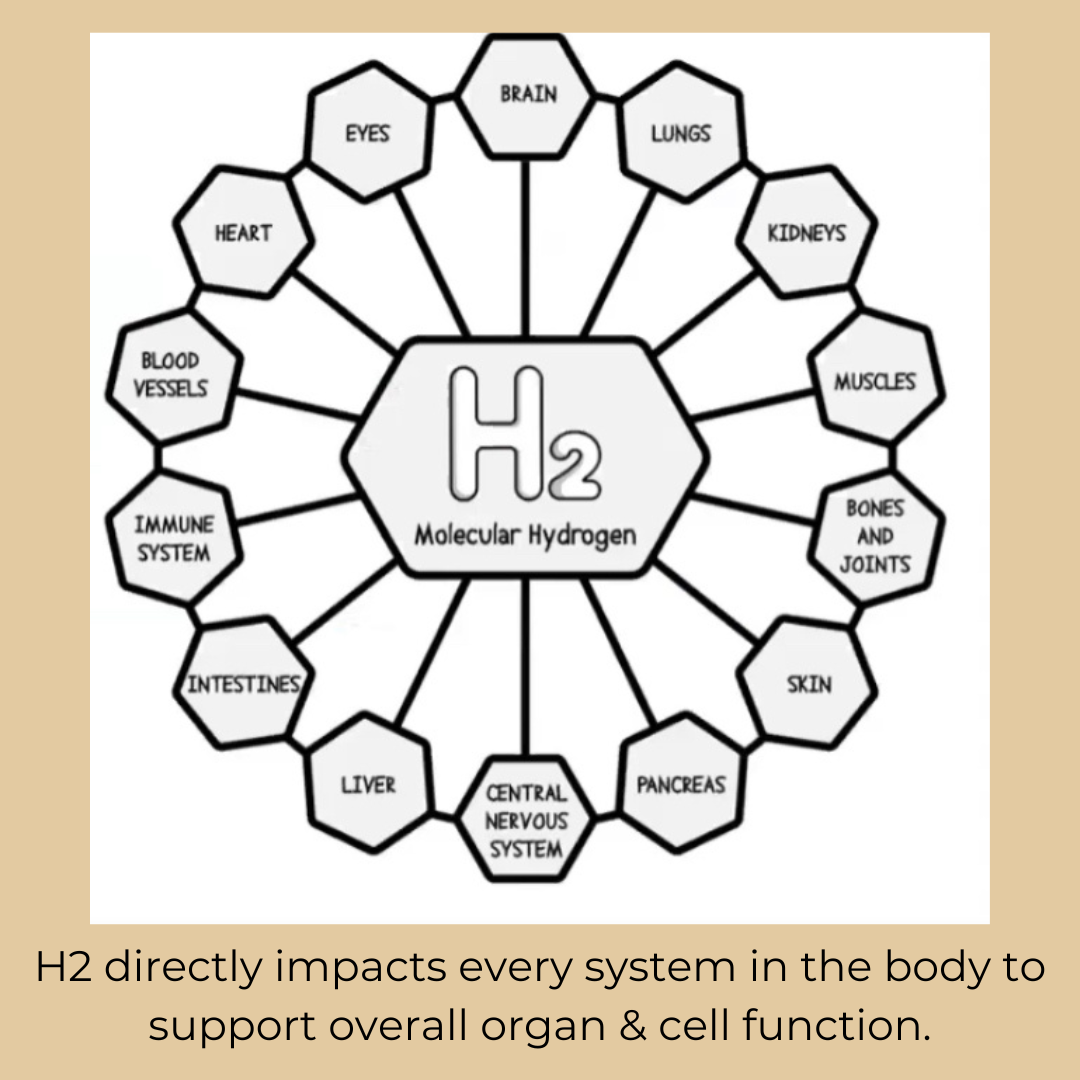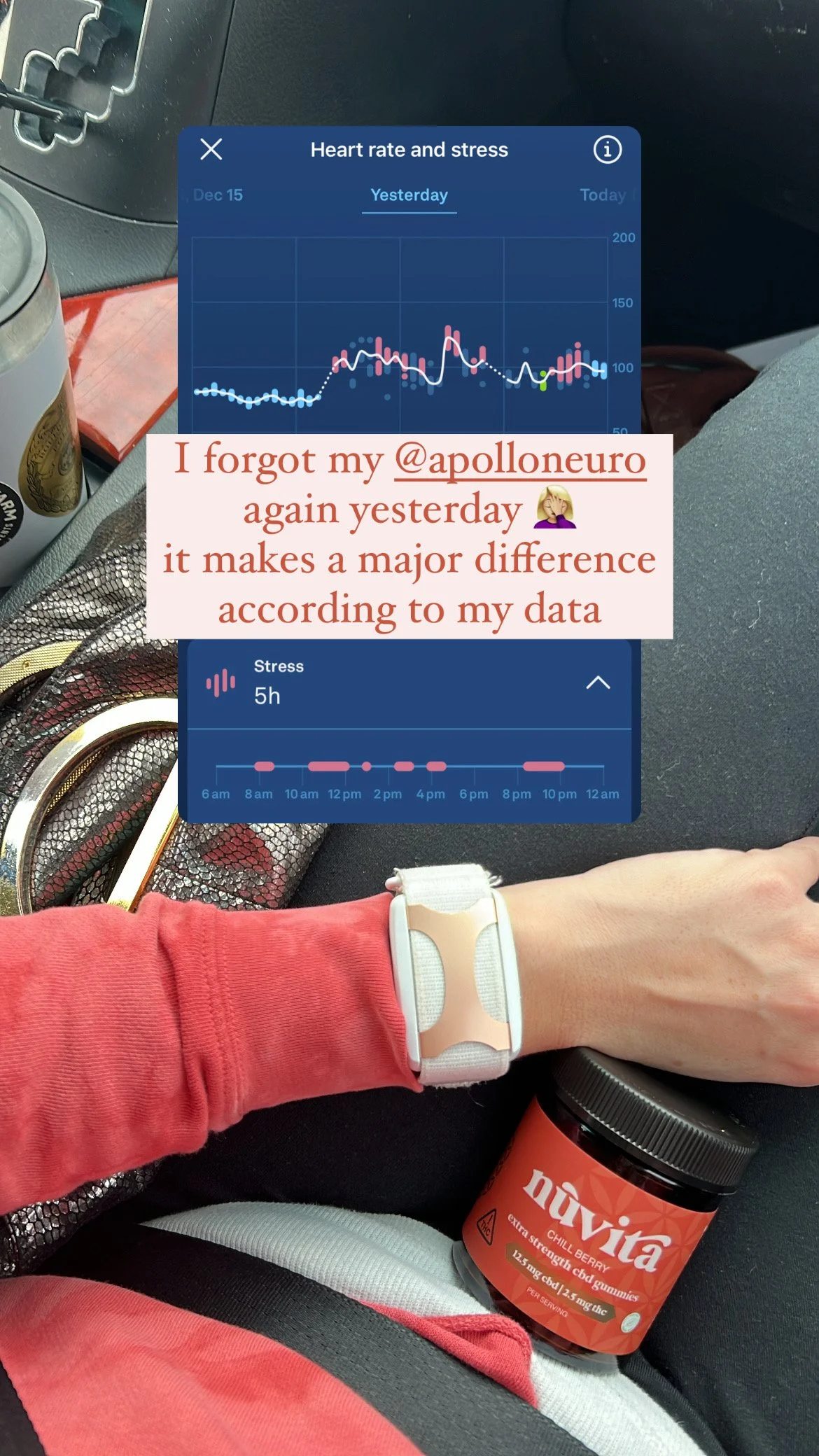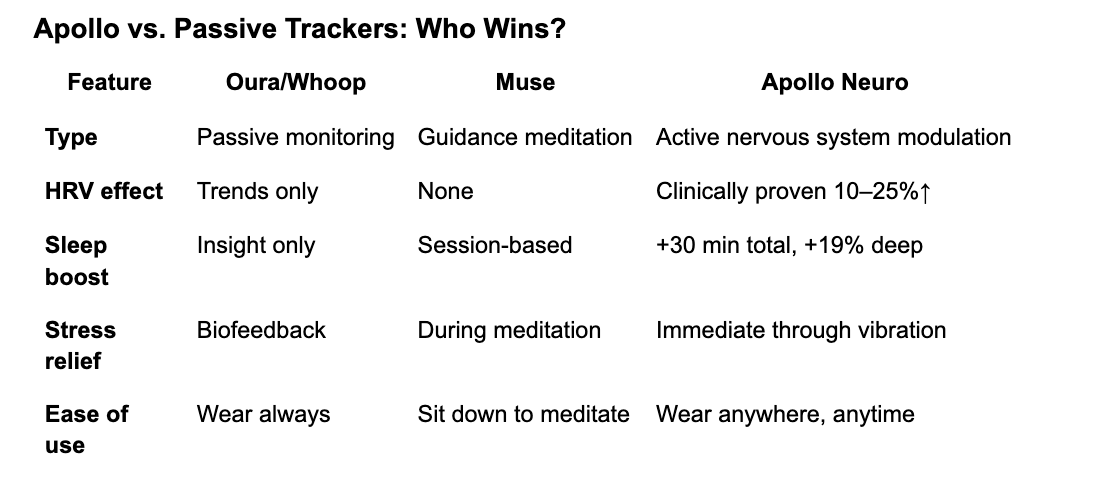Molecular Hydrogen (also known as H₂) has been getting a lot of attention lately- and for good reason!
It is the worlds smallest antioxidant (which means it can get into the cells, into mitochondria & pass the blood brain barrier) & there are now thousands of scientific studies showing that it has benefits in many disease models. You can see those studies for yourself at the Molecular Hydrogen Institute & I’ve also linked many of them on my Science Page.
What are Antioxidants?
Antioxidants are important for our health as they combat free radicals in the body. Free radicals are unstable molecules that attack healthy atoms, steal their electrons, & cause damage within our bodies. Damage caused by free radicals is known as oxidative stress, being the leading cause of disease.
Antioxidants (like H₂) help prevent oxidative stress and keep you healthy. Electrolyzed-reduced-water is full of H₂ & is exactly why it’s the only water my family drinks.
When it comes to antioxidants, there are many sizes & types. I’m sure you’ve heard of common supplemental antioxidants like Vitamin C, Glutathione, Vitamin E, etc. These are all great & necessary to the body but they all do different things & have limited effectiveness for a couple of reasons.
1) They can only protect against some Free Radicals but not others, meaning many different types of Antioxidants are needed for the wide variety of Free Radicals.
2) They cannot distinguish between necessary & harmful Free Radicals. Some Free Radicals are beneficial to our cells, such as hydrogen peroxide.
Molecular Hydrogen solves both problems. H₂ selectively targets only the toxic oxygen radicals, and also neutralizes every type of harmful Free Radical in our cells. For instance, H₂ selectively neutralizes the most harmful Free Radical, hydroxyl (OH), by turning it into water. H₂ protects the cell’s DNA, RNA, protein, lipids & more from Oxidative Stress better than any other antioxidant.
You can see the different sizes of antioxidants below compared to molecular hydrogen.
What areas of the body does H₂ benefit?
If you flip through the gallery below, you’ll see that it has positive impacts on every part of the body. I’ve highlighted the areas of skin health, muscles, blood vessels, detoxification support & how it is anti-aging. Again, if you’d like to read through the thousands of pubmed articles on the subject you can click the links in the first paragraph of this blood or search “electrolyzed reduced water” on pubmed.
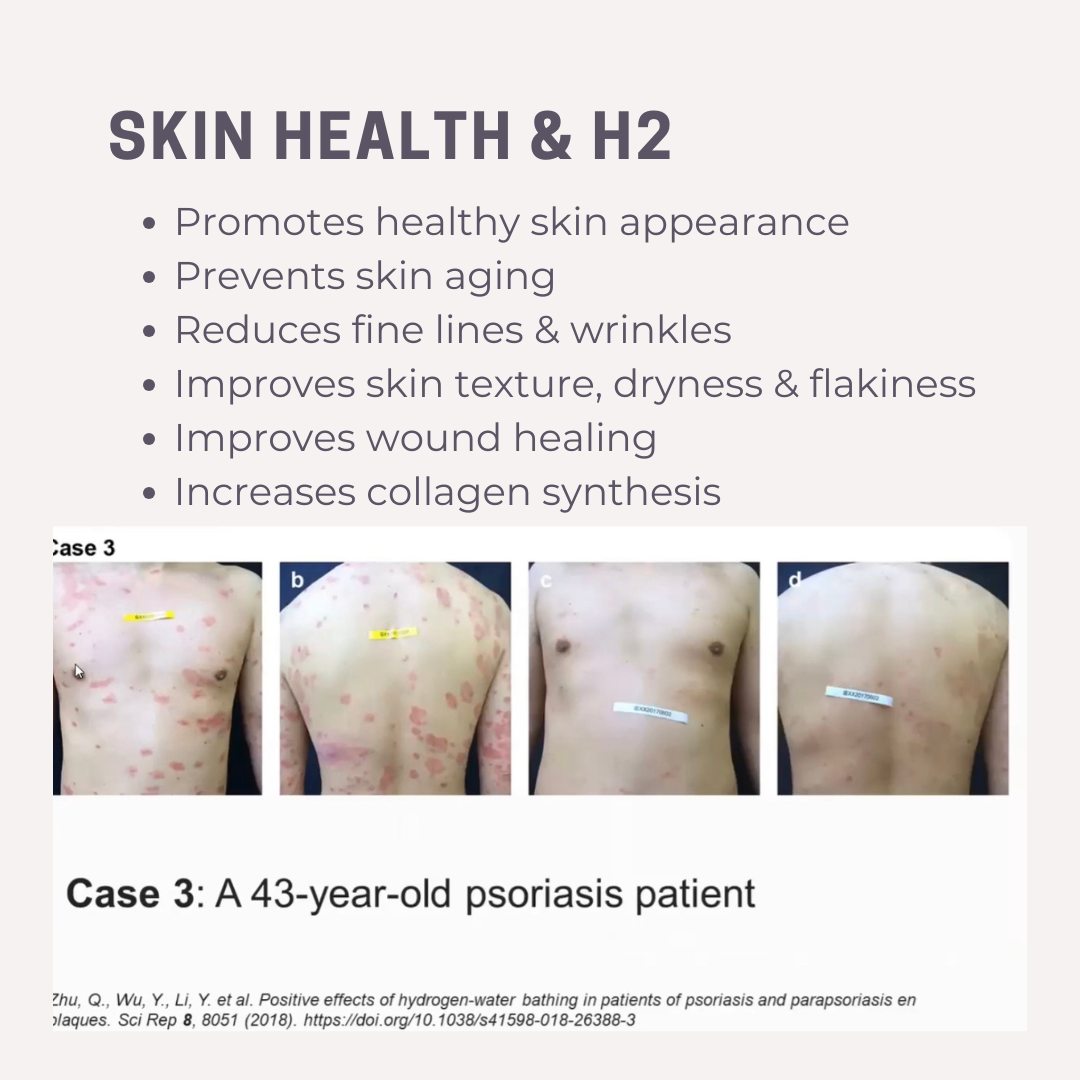
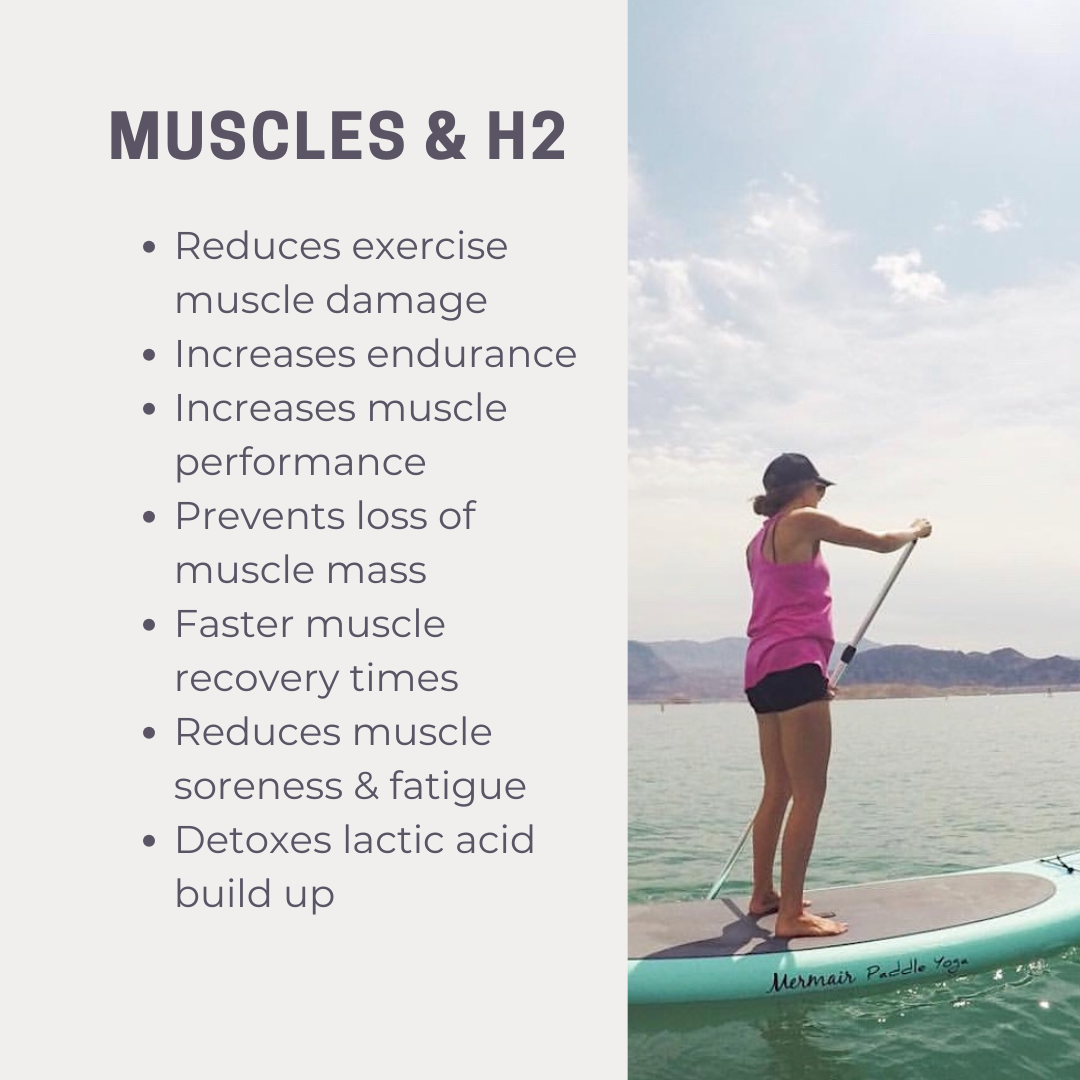
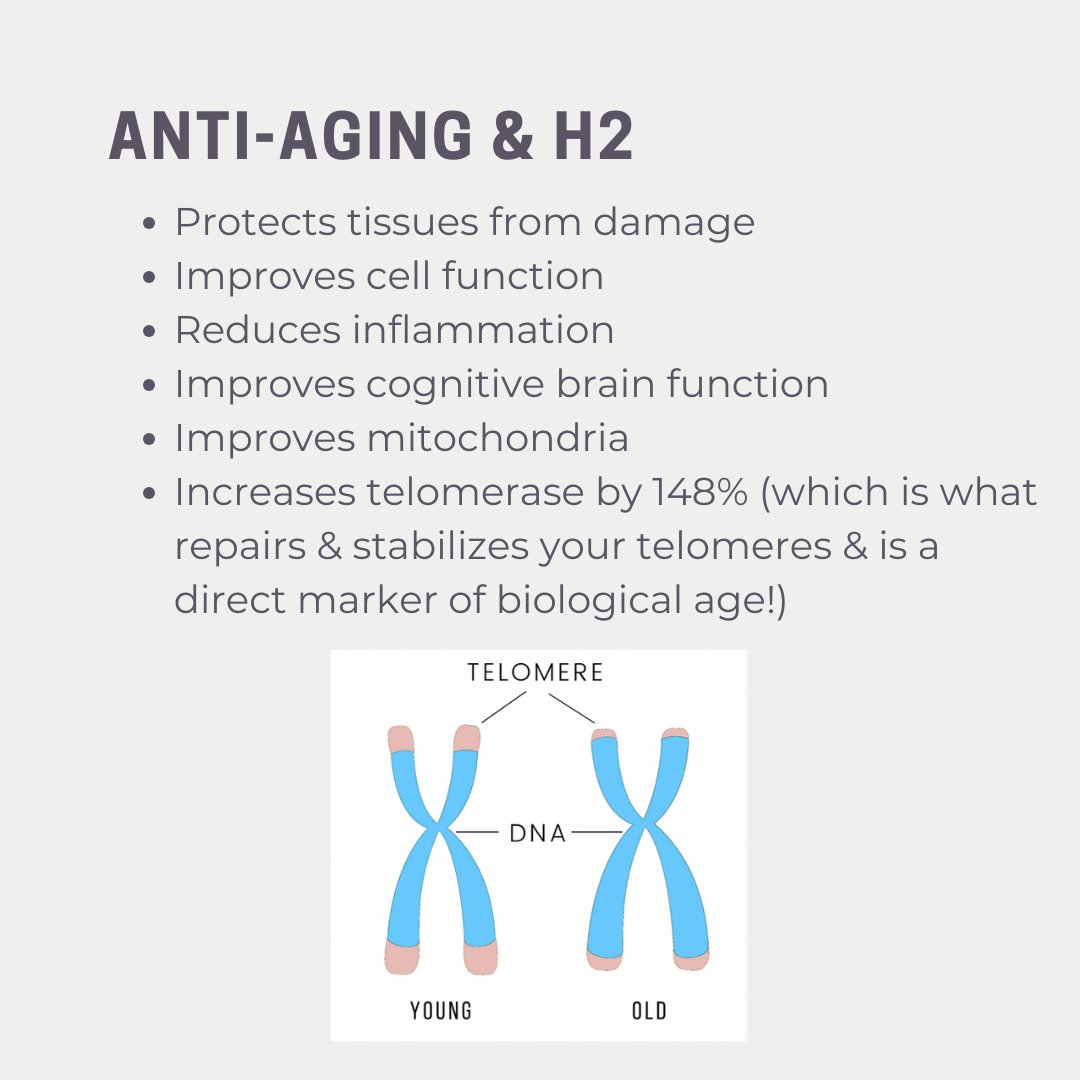
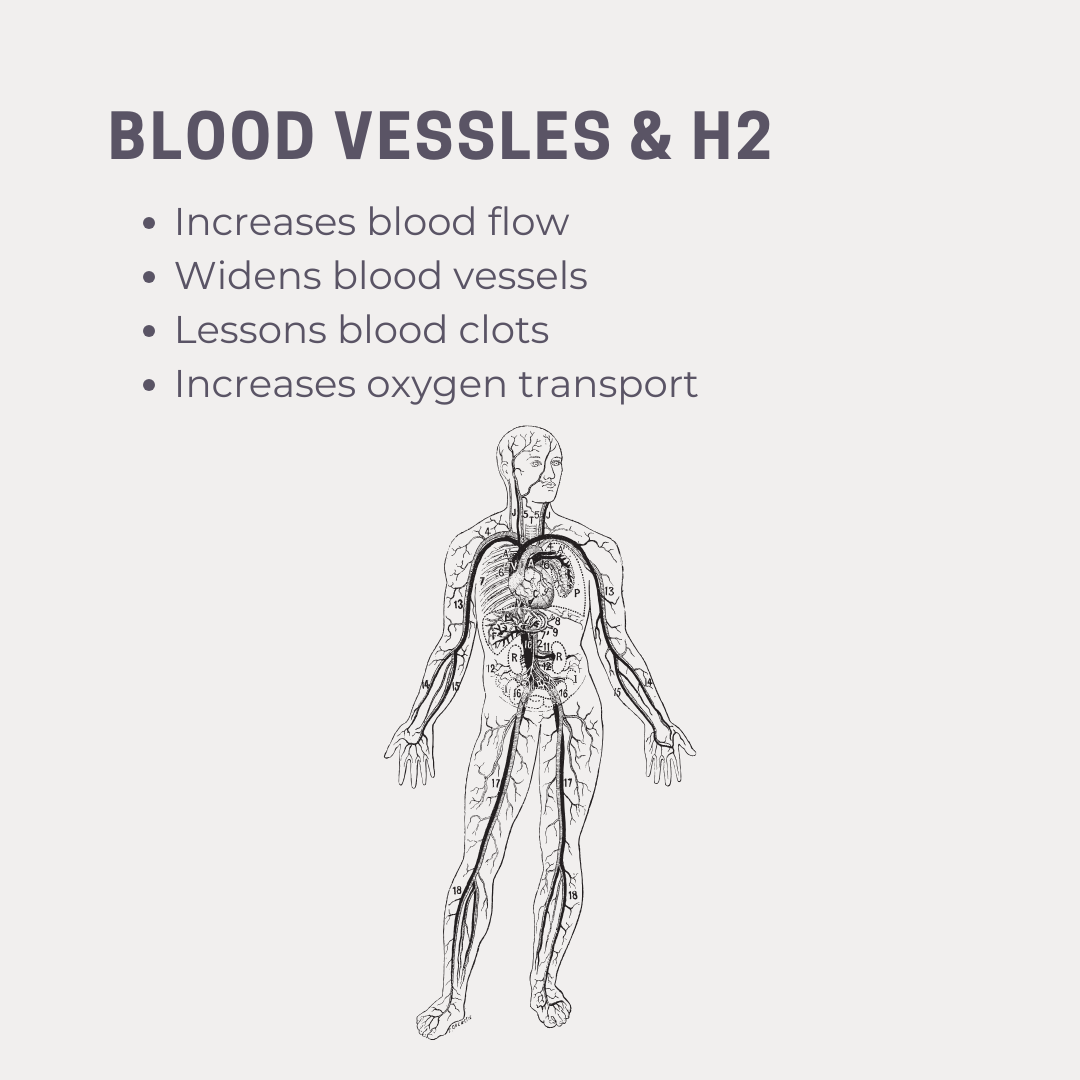
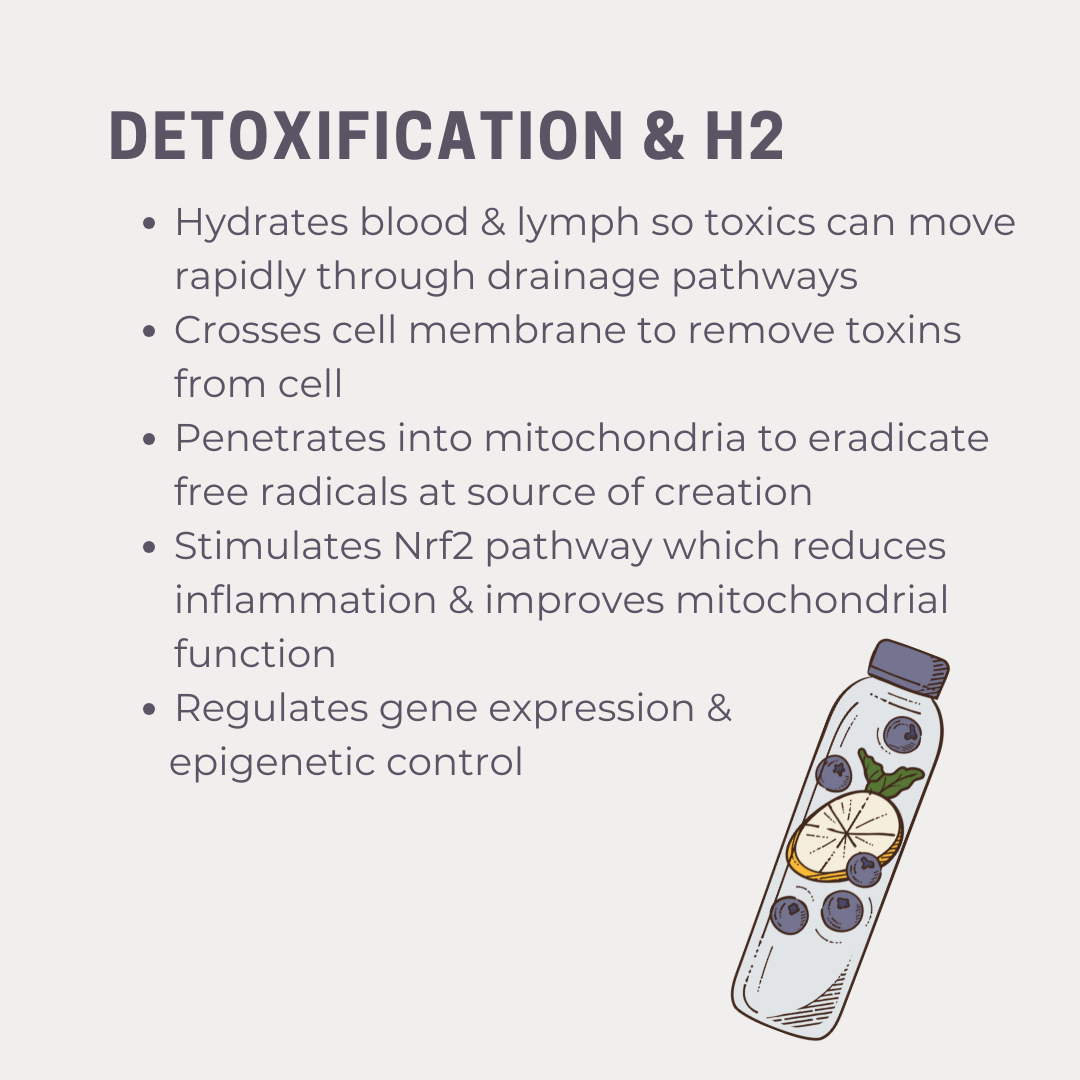
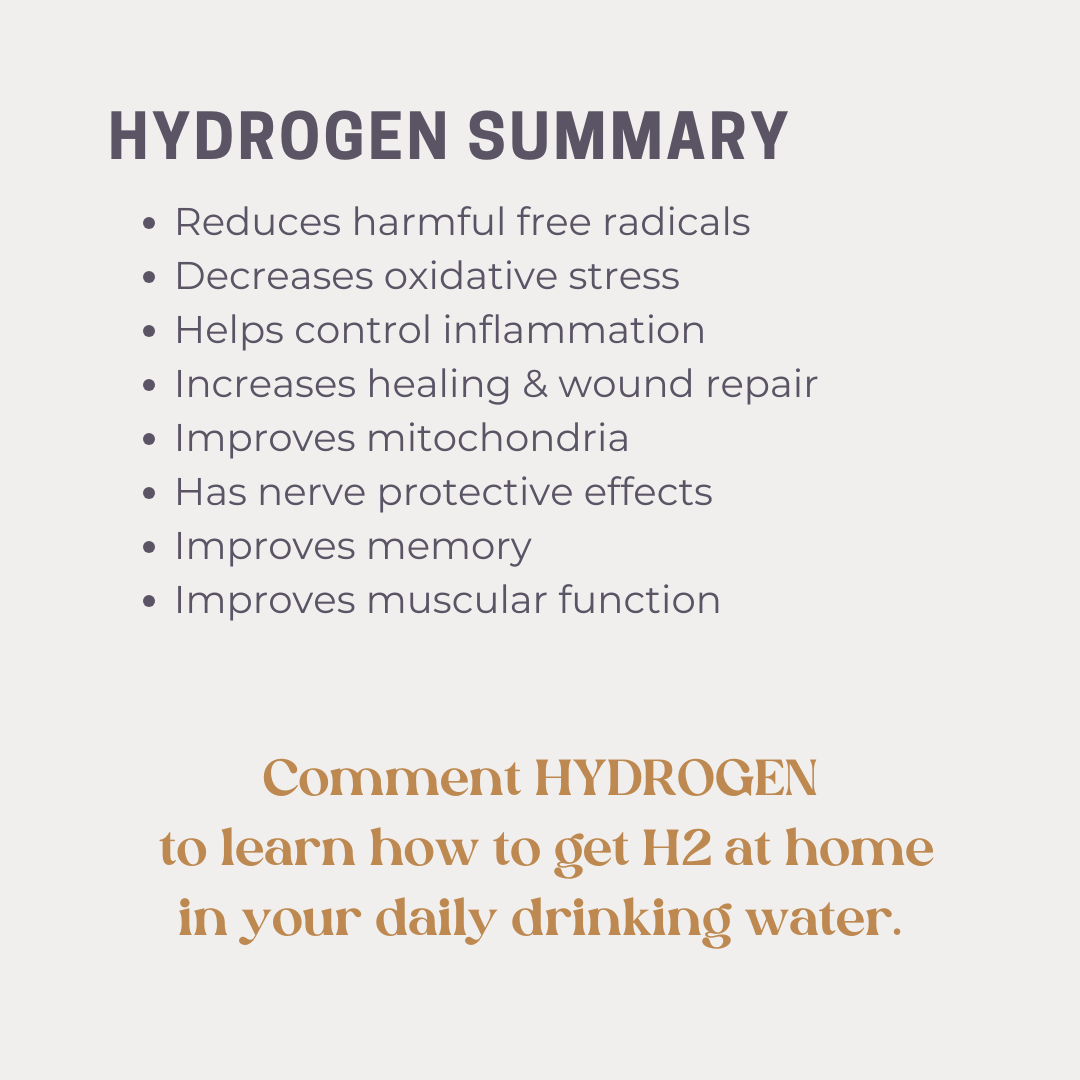
How To get access to H₂ in your home
The easiest way to consume this antioxidant is by drinking it in your water. We use the Kangen machine to make sure we ingest it every hour of every day. H₂ evaporates over a couple of days time, so having a source that makes it fresh will give you the best benefits over time. It easily hooks up to the faucet & is simple to operate!
Not only does it create Molecular Hydrogen water, it also creates Hypochlorous Acid, Beauty Water, Neutral water & High Alkaline Water. You can see the many uses for those in this blog post.
By having this machine, we save over $2,000/year because we are no longer buying cleaning supplies, first aide products, fruit & veggie wash & more.
If you want more information you can read more about the machine & it’s uses HERE.
If you are ready for your own machine in your home, click the button below to check out the financing options.
